Text
deltarune chapter 4 is the kinda game that makes me wanna write shit like this
2K notes
·
View notes
Text
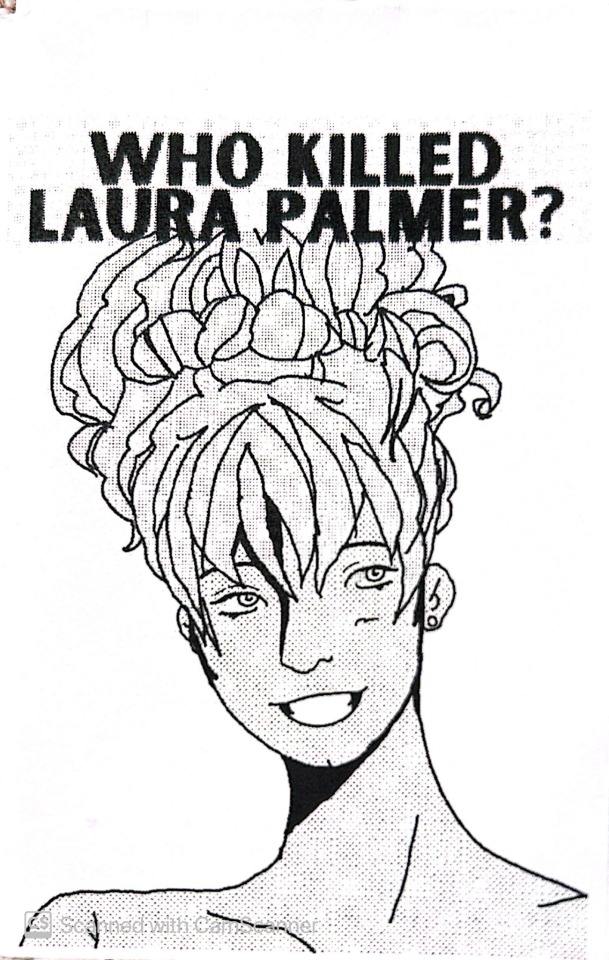







My zine I made to sell for family campaigns I love how it came out
3K notes
·
View notes
Text



is anybody going to talk about how noelle’s mom is hellish combination of all the betas kids guardians
7K notes
·
View notes
Text
Daniel de Visé’s ‘The Blues Brothers’

I'm in the home stretch of my 20+ city book tour for my new novel PICKS AND SHOVELS. Catch me at the TUALATIN public library TOMORROW (June 22). After that, it's LONDON (July 1) with TRASHFUTURE'S RILEY QUINN and then a big finish in MANCHESTER on July 2.

I picked up Daniel de Visé's The Blues Brothers: An Epic Friendship, the Rise of Improv, and the Making of an American Film Classic at LA's Diesel Books; it was on the receiving table I sat next to as I signed books after a book-tour reading, and I snuck peeks at the back cover while I chatted with the long line of attendees:
https://danieldevise.com/product/the-blues-brothers-an-epic-friendship-the-rise-of-improv-and-the-making-of-an-american-film-classic
By the time the line was cleared, there was no question that I was going to buy this book, even though it wasn't formally for sale for a couple days (the bookstore staff were kind enough to make an exception for me, not least because I promised them that I wouldn't get a chance to read it for quite some time as I flitted from city to city on the rest of the tour).
Like many people of my generation, I grew up with The Blues Brothers. I taped the movie off of TV when I was about 14 and literally wore the tape out in the next four years, re-watching and re-re-watching the movies on that tape – Animal House, The Blues Brothers and Spinal Tap – so many times that I can still just about recite those movies verbatim, more than 30 years later.
The Blues Brothers is sunk so deep into my psyche that I don't know that I ever questioned why they were so embedded in my outlook. I don't know if I can even tell you when I first saw the movie. Certainly, my friend-group was very into the movie, and my best friend and I went as Jake and Elwood on multiple Hallowe'ens at the Rocky Horror Picture Show at Toronto's Roxy Theatre, until it became such a cliche for us that we felt the need to mix it up and dress up at zombie Jake and Elwood.
But beyond the movie, I was taken with the Blues Brothers' music. I didn't know much about blues, boogie woogie and other roots music before the Blues Brothers came into my life. The combination of the Blues Brothers movie and its sound-track sent me on a treasure hunt for music by the band, its musical guests, and the artists whose song they covered. By the time I was 20, I'd amassed a vast collection of used records, tapes and CDs featuring Cab Calloway, Ray Charles, John Lee Hooker, Aretha Franklin, Willy Mabon, The Chips, Floyd Dixon and more. Soon, I was leaping from one artist to others. I found an incredible Pop Staples/Steve Cropper/Albert King collaboration "Jammed Together":
https://www.youtube.com/watch?v=8Sarzs8VRSg
Within a few hops, I'd found my way to Sonny Terry and Brownie McGhee and thence to the immortal James Cotton:
https://www.youtube.com/watch?v=kl4IcMlrJwM
I started skipping Rocky Horror to see the house band at Chicago's on Queen Street, and from there found my way to the weekend jams at Grossman's:
https://torontobluessociety.com/venue/grossmans-tavern-2/
It's not an overstatement to say that The Blues Brothers altered my life, changing the music I listened to and the way I understood the musical ancestry of everything that went into my ears. Indeed, the effects that The Blues Brothers had on my life are so pervasive that I effectively stopped noticing them. When I put on a Memphis Slim album, it doesn't occur to me that the reason that music is on my hard-drive has something to do with that worn-out VHS cassette in my parents' living room in the 1980s.
Standing there at the counter at Diesel Books for an hour, sneaking peeks at the back cover of de Visé's book, set me to considering exactly how this weird and remarkable phenomenon came to be. I knew a little, of course – my friends and I used to trade the information that Aykroyd came from a family of famous Ontario Tories the same way we would have gossiped had his father been a famous serial-killer. And no one could escape some of the more salacious details of Belushi's death, though I absorbed most of what I knew via one of the greatest short stories I've ever read, Bradley Denton's "Calvin Coolidge Home for Dead Comedians," about Belushi and Lenny Bruce leading a revolt in Comedian Hell:
https://en.wikipedia.org/wiki/The_Calvin_Coolidge_Home_for_Dead_Comedians
So I bought a copy off the receiving table, straight out of the warehouse box, and I've finally gotten around to reading it, and holy moly is it fascinating! I confess that in the months since I brought the book home and stuck it on the TBR shelf, I'd mostly forgotten why I'd picked it up and had started to view it as a book full of production trivia, and when I picked it up this week, it was with an eye to skimming it quickly before putting it out at the curb in my Little Free Library. Instead, I found myself utterly engrossed in a brilliantly told, brilliantly researched tale that left me with a much deeper understanding of – and appreciation for – the cultural phenomenon that I was (and am) swept up in.
De Visé devotes the first third of the book to snappy, revealing biographies of Belushi and Aykroyd, who grew up in very different milieux, and were of very different temperaments, but who both found their way into comedy just as the tradition of Borscht Belt comics and variety shows were giving way to a younger, weirder kind of comedy, a mixture of Monty Python, National Lampoon and improv.
These biographical sketches are short, but they don't shy away from nuance – Belushi's parents, for example, are simultaneously painted as loving and also reckless and self-involved. De Visé gives the lion's share of attention to Belushi, but he doesn't stint on detail about Aykroyd, strongly implying that "Danny" is on the spectrum, with a deep collection of "special interests" and a deep discomfort with eye contact that accounts for habit of wearing sunglasses.
As the two men find their way into various pioneering comedy projects – Second City, National Lampoon radio shows – they start to inch towards Lorne Michaels, and thus to each other. As de Visé painstakingly traces the ups and downs of their comedy careers, he paints a vivid picture of the wild swings of talented, striving artists at the start of their careers. By the time we get to the SNL chapters, the show itself becomes the star, and its rocky early days strongly echo the struggles of the comedians we've followed to its stage.
The actual production story of The Blues Brothers movie doesn't start until more than halfway through the narrative. By that time, we've been set up with the way that filmmaking, comedy, popular culture, and politics have all changed to make The Blues Brothers movie a possibility. De Visé shows us how Belushi had won over a long list of household names in the entertainment industry, and how Aykroyd's meticulous, obsessive nature honed and directed Belushi's wild talent.
The actual production of, and reception to, The Blues Brothers movie arrives in the book as a kind of extended climax and denouement, and yes, there are tons of funny bits of production trivia and gossip in this section. From winning over the mayor of Chicago (who reversed a decades-long policy of all-but-total prohibitions on filming permits in the city) to dropping a Ford Pinto thousands of feet, to the garage where, every night, dozens of surplus police cars that had been crashed that day were refurbished and gotten into shape to be crashed again the next day.
And while all of this is going on, de Visé gives us a vivid portrayal of Belushi's spiraling addiction, the disease that is killing him right there, in front of everyone who loves him. That story carries over into the film's aftermath, as it is laboriously cut from more than three hours (it was originally intended to be shown with an intermission!) and released to hostile critics and an adoring public.
These are the final days of Belushi, something we all know and can see coming. But even as Belushi approaches his final days, we learn how The Blues Brothers movie had created a legacy. It was Aykroyd who got Belushi into the blues, and the schtick they did about wanting to preserve this music from a world that was set to bury it and forget it wasn't just for the movie.
Aykroyd and Belushi wanted to bring the music back. They couldn't stand that the likes of Cab Calloway, Aretha Franklin, Ray Charles and James Brown were playing county fairs and half-full night clubs. They wanted the music to escape from history and live again. And they succeeded. In a "where are they now" coda straight out of the closing credits of Animal House, de Visé documents how the artists featured in the movie – and the musical traditions they represented – experienced a massive revival following the film's release, which the musicians themselves credit to the movie.
Which is where I came in, I suppose. That's how I got here, in this form, with a hard drive full of R&B, blues, country swing, jazz, boogie woogie and jump blues that vie with Talking Heads for play in my shuffle.
This isn't a book about a movie; it's a rich and engrossing tale of an extraordinary creative collaboration that found an unlikely foothold at just the right time and place. It's a sensitive, funny, and revealing account of Belushi, Aykroyd, and the comedians, impresarios and friends in their orbit. Even if you didn't wear out a VHS cassette and memorize the whole damned movie, you will find something surprising and delightful in these pages.
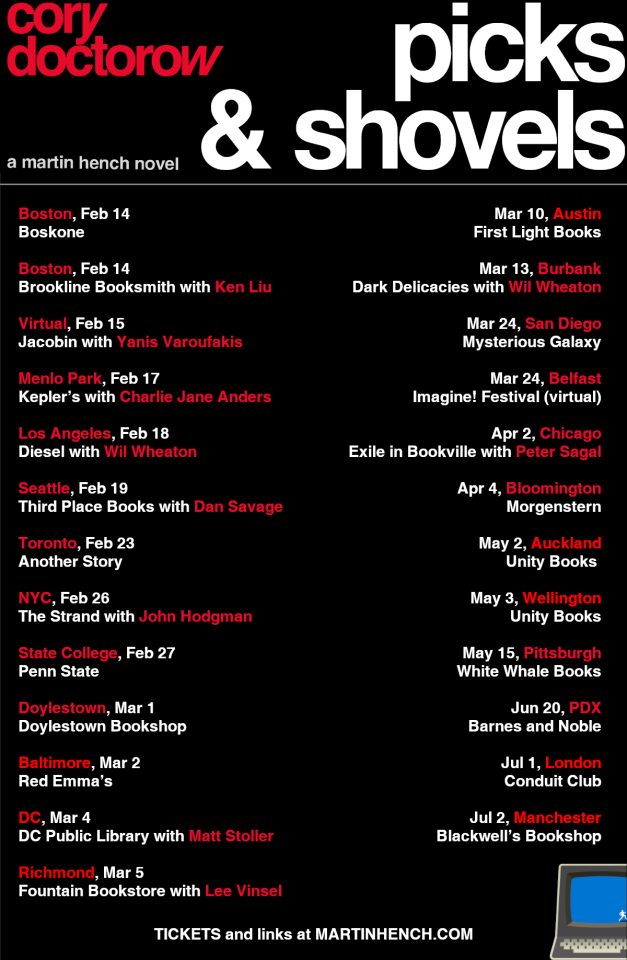
If you'd like an essay-formatted version of this post to read or share, here's a link to it on pluralistic.net, my surveillance-free, ad-free, tracker-free blog:
https://pluralistic.net/2025/06/21/1060-west-addison#the-new-oldsmobiles-are-in-early-this-year
234 notes
·
View notes
Text


There's some pretty obscure dialogue you can find in Chapter 4 where Ralsei roasts the fuck out of Susie and its awesome
You specifically have to tell Ralsei not to park his butt in the room with the couch, and then backtrack here before the final boss!
(Source: https://x.com/pynchosa/status/1935780728119128350?s=46)
9K notes
·
View notes
Text
yo tenna what’re you spraying there dude
2K notes
·
View notes
Text



is anybody going to talk about how noelle’s mom is hellish combination of all the betas kids guardians
7K notes
·
View notes
Text
Background screenshots from Gadget: Past as Future, I've got a bunch of these, I might post more later.


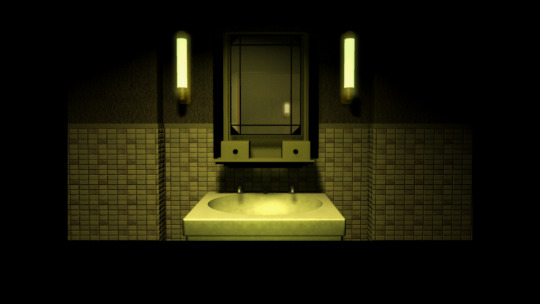
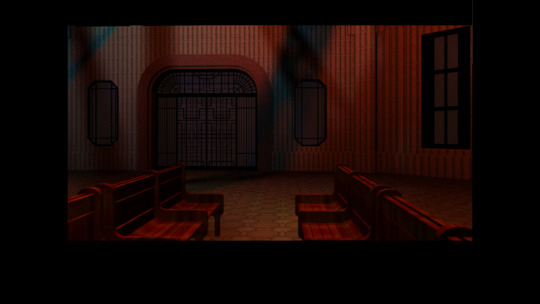
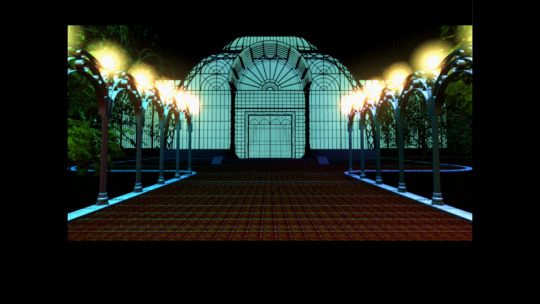


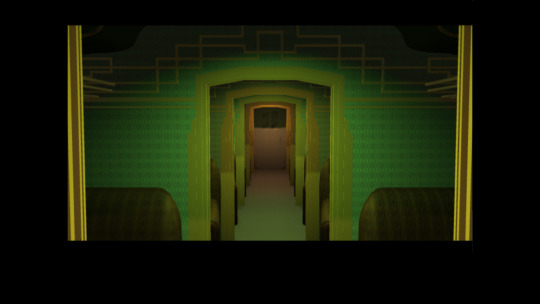


4 notes
·
View notes
Text







you two are so goddamn weird you deserve the world
43K notes
·
View notes
Text

just heard that BRIAN WILSON has left this timeline and dang it hits hard. there are so many thoughts trotting through my mind, but id like to take a moment to talk about my personal connection to this and what brian wilsons music meant to me, so bear with me buckaroos.
back when i married sweet barbara i was lucky enough to gain a family member who we will call TOM. tom was a spirit with a trot unlike anyone i have ever known. he was born into a body that they said would likely not live past his youth, but he kept on TROTTIN into old age.
eventually however, tom fell. he was declared to be in a vegetative state with little hope of waking. it was devastating for sweet barbara and for me. visiting him in the hospital taught me a lot of things, and it has always stuck with me that you can learn from someone AFTER they have left too
anyway, toms favorite band was THE BEACH BOYS so what i did a few times is id go to the hospital with two pairs of headphones and put them on him and me and listen to those sweet harmonies for a while. i tried to stay away from the sad songs but theyd slip in. id cry.
i knew it didnt really matter because he was gone, this was just his body, but i did it anyway and SOMETHING about that made me feel guilty, like i was REALLY doing this for me. HOW DARE I? eventually he was taken off life support and i still think about those trips whenever i hear the beach boys
eventually i started to understand something about not just dying, but living. grief is a process and journey for someone else AND for us, and also, ITS OKAY TO JUST BE THERE. we are always trotting out rituals, and the fact they are just rituals does not take away from them.
there is a theme in BURY YOUR GAYS about art not really belonging to anyone, how it weaves through time. upcoming book FABULOUS BODIES is even MORE about the events im discussing. BOTH these books are a tether from brian wilson recording sloop john b, to tom in the hospital, to me, and then to you
so we are left with this chain of CREATION AND LOVE that we will never know. brian wilson had no idea sitting at that piano how far every note would resonate through time, BUT THEY DO RESONATE AND THEY CARRY LOVE SO SO FAR. my point in all of this is to say never forget how far YOUR notes resonate
we are creating every moment as solo performers, AND as a choir. so i want to say a profound and sincere THANK YOU for all the moments that you have made, and to brian wilson specifically for ‘god only knows.’ me and tom had a blast listening to it for one last spin. enjoy the next timeline brian
1K notes
·
View notes
Text
on watching a parent age
i saw somebody say “what if you’re gone and i haven’t become anything yet” and basically that broke me on a random thursday evening

61K notes
·
View notes
Text
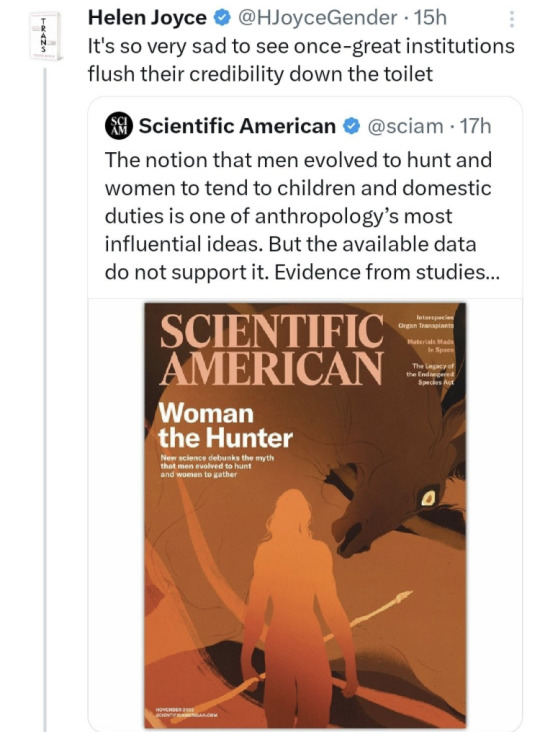
helen “trans people are perpetuating gender steriotypes” joyce is now upset that the scientific american is writing about how women were hunters too back in the day, not just mothers and caretakers. feminist win!
138K notes
·
View notes
Text
S tier steven universe moment is when connie finally realized that all of steven’s parental figures sucked shit at being parental figures and have been relying on him for emotional problems the whole time and she calls them all assholes
6K notes
·
View notes
Text

It is repeatedly emphasized in the show that the process of minining kalkite is invasive and risks destroying Ghorman’s biosphere, that the Empire had sought other options before committing to strip mining Ghorman, and that because Ghorman is a prominent Colonies world it would take time to turn public opinion against the Ghor - multiple years! - before they could begin. The entire point is that fascists can’t simply leave well enough alone - to get what they want they will eagerly manufacture consent for genocide. The Empire carefully manages public opinion to spin the massacre as a years-long terrorist uprising being put down, and it’s only Mon Mothma’s speech in the Senate that is able to blow a hole in that narrative.
This is just basic basic basic narrative analysis, but unfortunately we are dealing with Star Wars fans so that is not in their toolbox
2K notes
·
View notes
Text
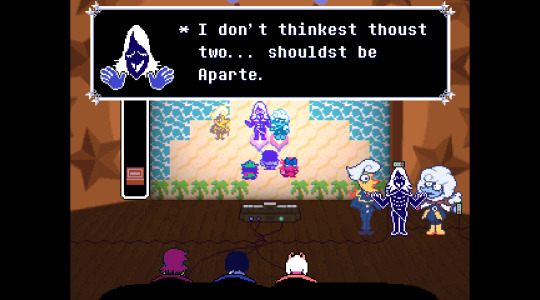




happy pride month to bi poly icon rouxls kaard
323 notes
·
View notes


